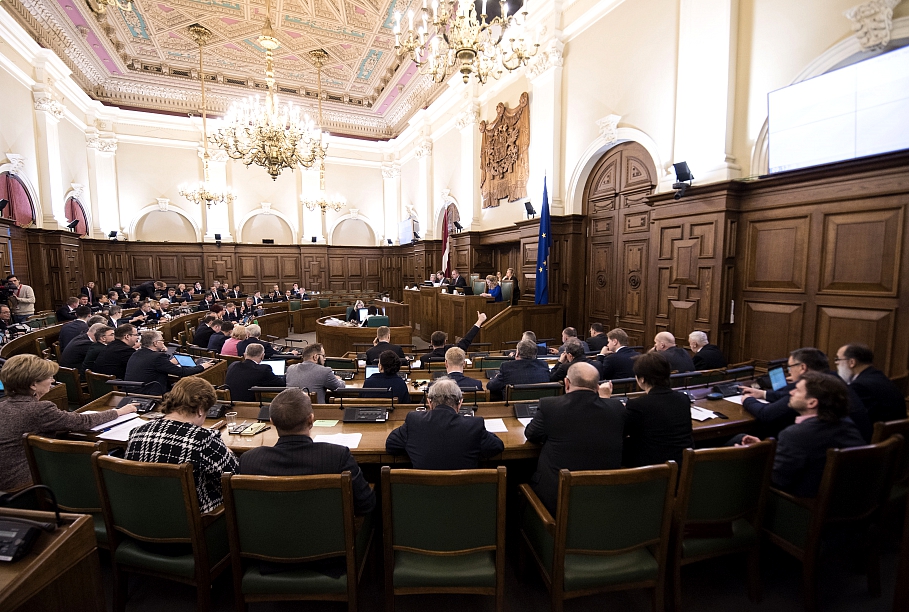Saeima approved in principle several bills that stipulate increasing the microenterprise tax rate to 15 percent next year and scrapping minimum social contributions.
Voting for the amendments to the Microenterprise Tax Law were 59 MPs from coalition parties the Greens and Farmers Union and National Alliance, backed up by lawmakers from opposition parties Harmony and For Latvia From The Heart.
Six members of the opposition Latvian Association of Regions voted against the legislation, while government party Unity's eighteen Saeima members abstained fromt he vote. Likewise, the amendments to the Law on State Social Insurance were supported by 65 MPs as the eighteen Unity members abstained again.
The amendments to the Microenterprise Tax Law stipulate setting the microenterprise tax rate at 15 percent and, starting 2017 (up from 9%), transferring 70.4 percent of revenue from microenterprise tax into the state social insurance contributions account. From January 1, 2018, 80 percent of microenterprise tax revenue will be paid into the state social insurance contributions account.
Saeima is planning to pass the legislation in the final reading on December 20.
Earlier, Saeima turned down amendments proposed by Unity, which suggested postponing minimum social contributions until September 1, not scrapping them altogether, and allowing microenterprises to choose between paying full microenterprise tax (and no social contributions) or reduced tax plus social contributions for their employees.
Earlier this week, speaking to reporters after a meeting with Prime Minister Maris Kucinskis (Greens/Farmers), President Raimonds Vejonis said he was dissatisfied with the ruling coalition's work on tax legislation and went on to describe the situation as "a real mess". The president finds it unacceptable that new tax initiatives are being debated at the last moment instead of being prepared and discussed in due time.
The continued wrangling over such a central issue as tax less than a month after the 2017 budget was passed shows the increasing difficulty the coalition has with presenting a united front on a range of issues.
And according to the range pf proposals submitted for the final reading of the bill, the wrangling still has some way to go, reported the LETA news agency. The different political parties have all proposed different microenterprise tax rates depending on the turnover.
Proposals for the final reading of the amendments to the Law on Microenterprise Tax have been submitted by the ruling Unity party and the opposition parties - Harmony, For Latvia From The Heart (NSL) and the Latvian Association of Regions (LRA).
Unity proposes that the microenterprise tax should be 5 percent for the businesses paying minimum social contributions for their employees and 15 percent for the companies that had opted for not paying minimum social contributions.
The LRA proposal is a 5 percent tax for microenterprises with annual turnover up to EUR 12,000 and a 9 percent tax for microenterprises with annual turnover over EUR 12,000 and up to EUR 100,000.
According to the proposal submitted by NSL, a 12 percent tax should apply to microenterprises with annual turnover up to EUR 7,000 but microenterprises with annual turnover ranging from EUR 7,001 to EUR 100,000 should pay a 15 percent tax.
Under Harmony's proposal microenterprises with annual turnover up to EUR 7,000 should be paying a 9 percent tax. In case of microenterprises with annual turnover between EUR 7,001 and EUR 100,000, the 9 percent rate would apply during their first three years in business but, starting with the fourth year, the microenterprise tax will be 12 percent.
It should all make for plenty of deals behind closed doors before the final reading of the bill.































